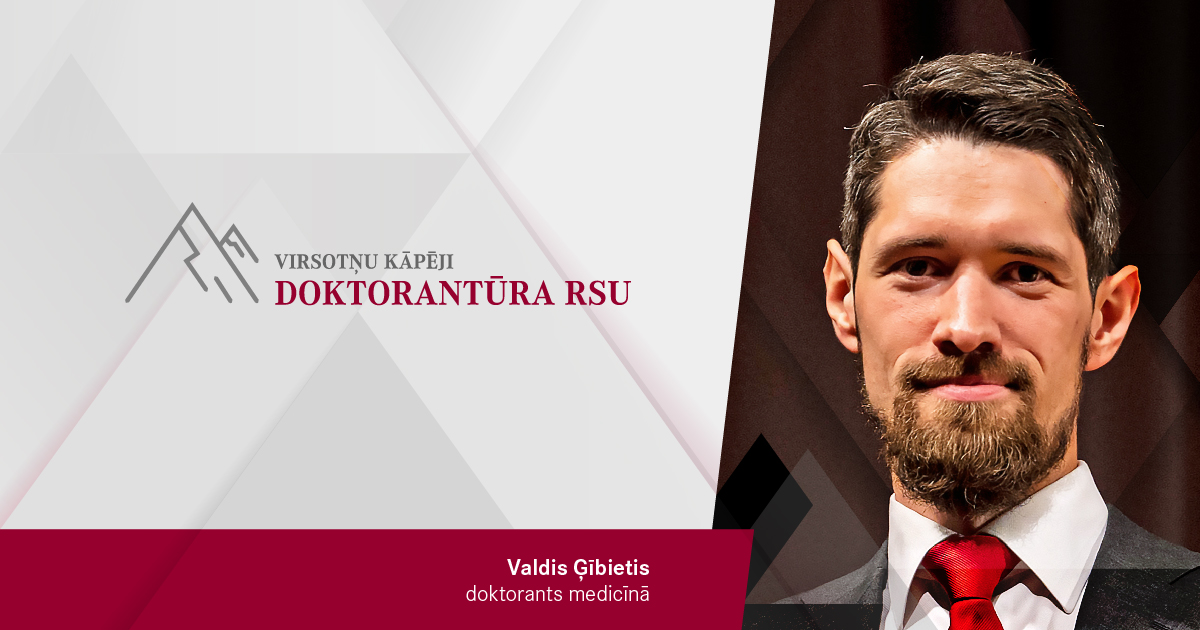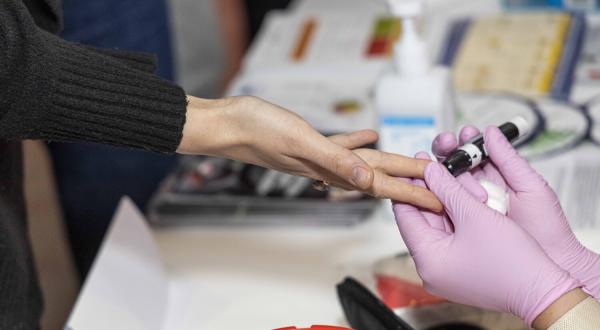Climbing academic peaks: Valdis Ģībietis reflects on his PhD experience at RSU
We are launching a five-story series about five passionate, courageous people who challenged themselves and made the decision to embark on a climb. This climb requires willpower, endurance, and flexibility to overcome difficulties that come up along the way, but in return brings new, exciting discoveries, support from a team, and access to dizzying horizons like we hear about from mountain climbers. You don't however always have to pack a backpack to get to the top – you can achieve the same by enrolling in a doctoral programme at RSU!
In this series, our young doctoral students answer the first important questions you might have if you think that academic mountaineering is an exciting prospect and that reaching the peak is part of your life plan.
We conclude the series with Valdis Ģībietis, a doctoral student in medicine.

How did you choose the topic of your doctoral thesis?
I am an internist with a deep interest in rare internal diseases. I have a particular interest in a group of protein deposition diseases called amyloidosis. It seemed only logical to choose a thesis topic directly related to my clinical interests, so that I could use the data in both my medical practice and my further research work in my field. It's certainly an advantage when potential research patients come to me for a consultation! I chose to study transthyretin amyloidosis, which is one of the most common types of the disease. It often affects the heart, causing severe heart failure, but is treatable. It has been observed that there might be many more such patients worldwide than previously thought, but in Latvia, only a handful of cases have been identified so far. The aim of my research is to determine how many people in Latvia with thickened heart walls and symptoms of heart failure actually have amyloidosis. Additionally, I am planning to investigate how to use innovative biomarkers for earlier diagnosis and prognosis of the disease.
How did you find your thesis supervisor?
My supervisors are my main mentors in science and internal medicine – professors Andris Skride and Aivars Lejnieks. They encouraged me to pursue a doctoral degree. Their experience in science is beyond doubt.
How did you choose the university and programme?
Since I completed my medical studies and residency at RSU, and I also teach medical students at the University, it was clear that the right place for my doctoral studies is my alma mater. RSU offers a doctoral programme in healthcare with a sub-programme in medicine.
What’s your advice on how to draw up an application for a doctoral thesis?
The main thing is a good research idea that seems important, interesting, and novel to you. Keep in mind that
your thesis topic will take up a large part of your life for several years, so it must be something you are truly passionate about.
Next, you need to think about the methods that can be used to bring this idea to life and imagine how it can be done practically during the study. It is important to read the literature thoroughly to know what has been studied in this field worldwide, what remains unclear, and what the current trends are. It's extremely important to discuss your plan in detail with your supervisor and other mentors, if you have them. It wouldn't hurt to consult with current doctoral students – it's no secret that the final research often differs significantly from the initial proposal.
What do you value at RSU?
So far, I appreciate that the academic part of the programme is organised in a way that is convenient enough to combine with my work as a doctor.
RSU offers good opportunities to obtain scholarships and additional funding for research.
RSU also offers many optional lectures, seminars, and courses to broaden students’ horizons. Services such as the support that the library provides for research or the Statistics Laboratory with its helpful staff are also very useful. Having studied at RSU for a total of 13 years, I can see that the University is actively developing in all study areas and not resting on its laurels.
Related news
 RSU Health Day attracts many first-time donors and large number of student research groupsFor RSU Employees, For Students
RSU Health Day attracts many first-time donors and large number of student research groupsFor RSU Employees, For Students


